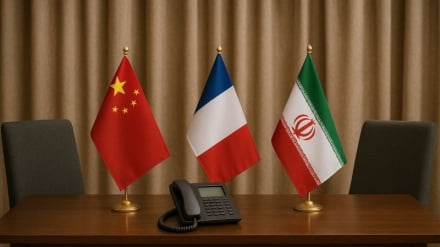Molavi’s teachings
The great Iranian thinker and poet of 7th Century AH, Molavi, calls on mankind to worship God; to realize the beauty of the universe; to recognize man’s honor and dignity; and to adopt a happy and kindhearted outlook throughout life.
The contemporary mankind needs literature more than ever. In the contemporary era, in which emotion seems to fade away, and reports on bloodsheds and massacres make headlines; the absence of literature in human life is sensed extensively. The prophecy of literature is to reflect the realities of human life. The contemporary mankind is in need of assistance. The characteristic traits and the inner conflicts of mankind have remained unchanged for centuries. The spirit of contemporary mankind is on a downward spiral. Human greed has surged in an unprecedented manner. The contemporary material world is sensing barbarism, while literature can help unite human beings. Literature has been the common aspect of human beings as of ancient times to this day. Thanks to literature, humans can re-identify each other and hold dialogues. Literature makes it possible for individuals to learn lessons and to create a new world, which is liberated from the yoke of violence, fabrications, deceit, and fear. The contemporary mankind has lost himself, his God, and love, and is baffled.
Jalal Ed-Din Mohammad Balkhi, popularly known as Molavi, is the prominent Iranian thinker and poet of 7th Century AH, who should be named as a great teacher of mankind, given that his teachings can still guide the disillusioned mankind and save the contemporary, lonely mankind, almost 800 years after his era.
Molavi is familiar with the human spirit. What he says about the inner feelings and turbulence of contemporary man shows his familiarity with the innate nature of human beings. He is connected with masses of people, and has known the resentments, selfishness, and jealousy of human beings, compelling him to urge for peace and amity, and the reformation of communities. The contemporary mankind can find oneself, love, and God in Molavi’s poems.
The forgiveness and mercy of God can be sensed in the lines of his poems. In Molavi’s belief, God always forgives his servitudes’ possible wrongdoings and doesn’t want His servitudes to be disappointed.
Molavi reminds mankind that no servitude should lose hope in God’s mercy and should not be mired in wrongdoings and disobedience toward the one and only creator of the world, God Almighty. This is because God’s kindness and forgiveness is never-ending and all-encompassing.
God is the never-ending source of happiness; and remembrance of God revitalizes one’s soul. The sense of presence of all-forgiving God in every moment of human life wipes out any possible trace of despair in human spirit and grants a sense of security, prosperity, and blessedness to human beings.
The disillusionment of the contemporary man is rooted in absence of love of God in human life. For this reason, mankind has become void of emotions, and turns a blind eye to crimes that he sees and hears about. Love, bridges the gap between man and God, and the bond between man and God has been broken for a while. Man has lost this righteous path because of his selfishness and stubbornness.
Molavi guides lost human beings toward love. He believes that the most appropriate bond with God can be established through love of God; which in turn makes it possible for human beings to understand themselves and to attain an elevated status. This optimism has been lost, and is the urgent need of contemporary mankind. In fact, one of the main sources of Molavi’s happiness is the sense of optimism which he maintains toward himself. He feels the presence of God through the establishment of a close bond with the creator of universe. Molavi is aware of his inner potentials and honors his innate nature.
In the view of Molavi, every single human being maintains the necessary talent and ability for establishment of a close bond with God.
MR/ME


